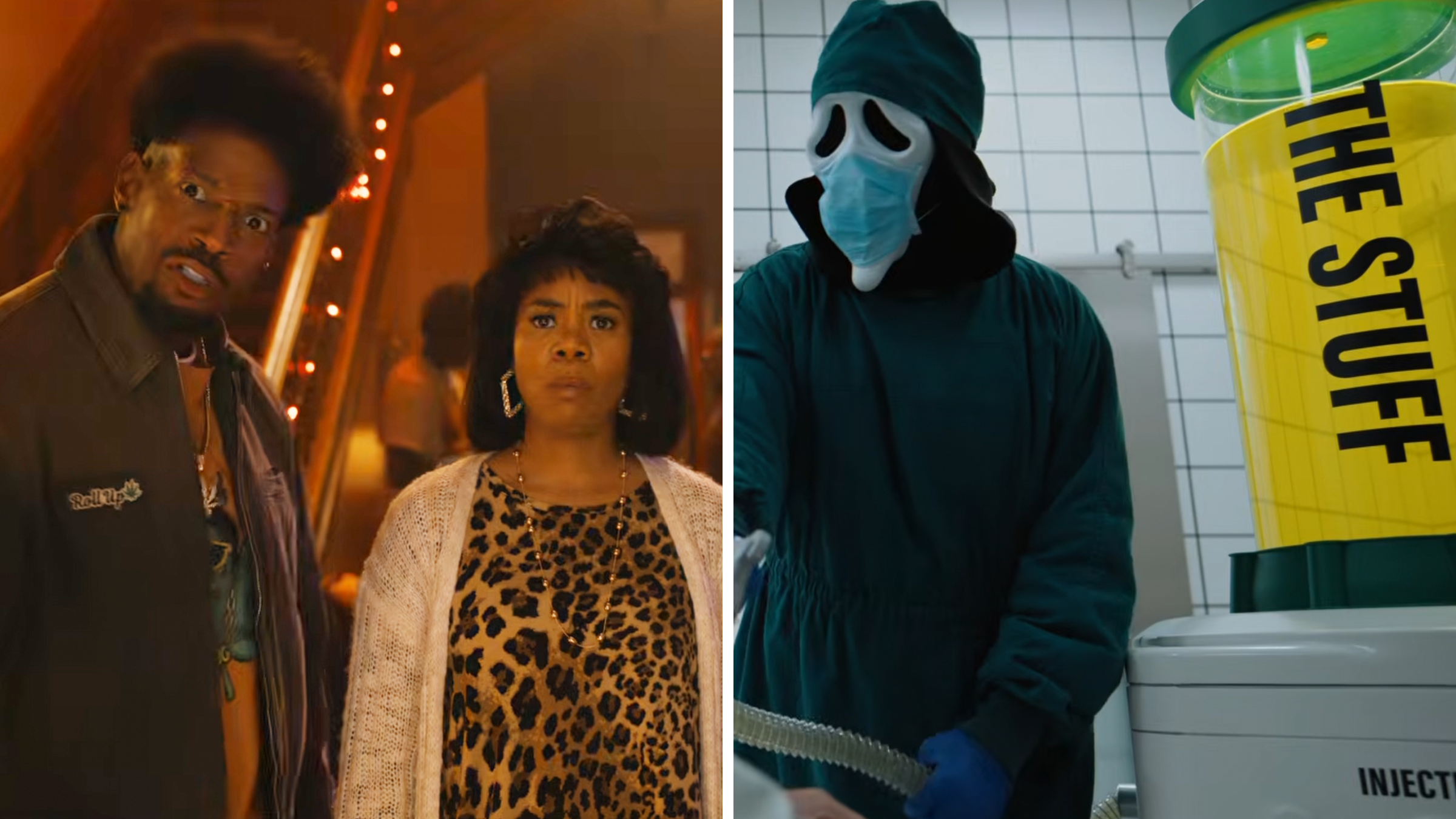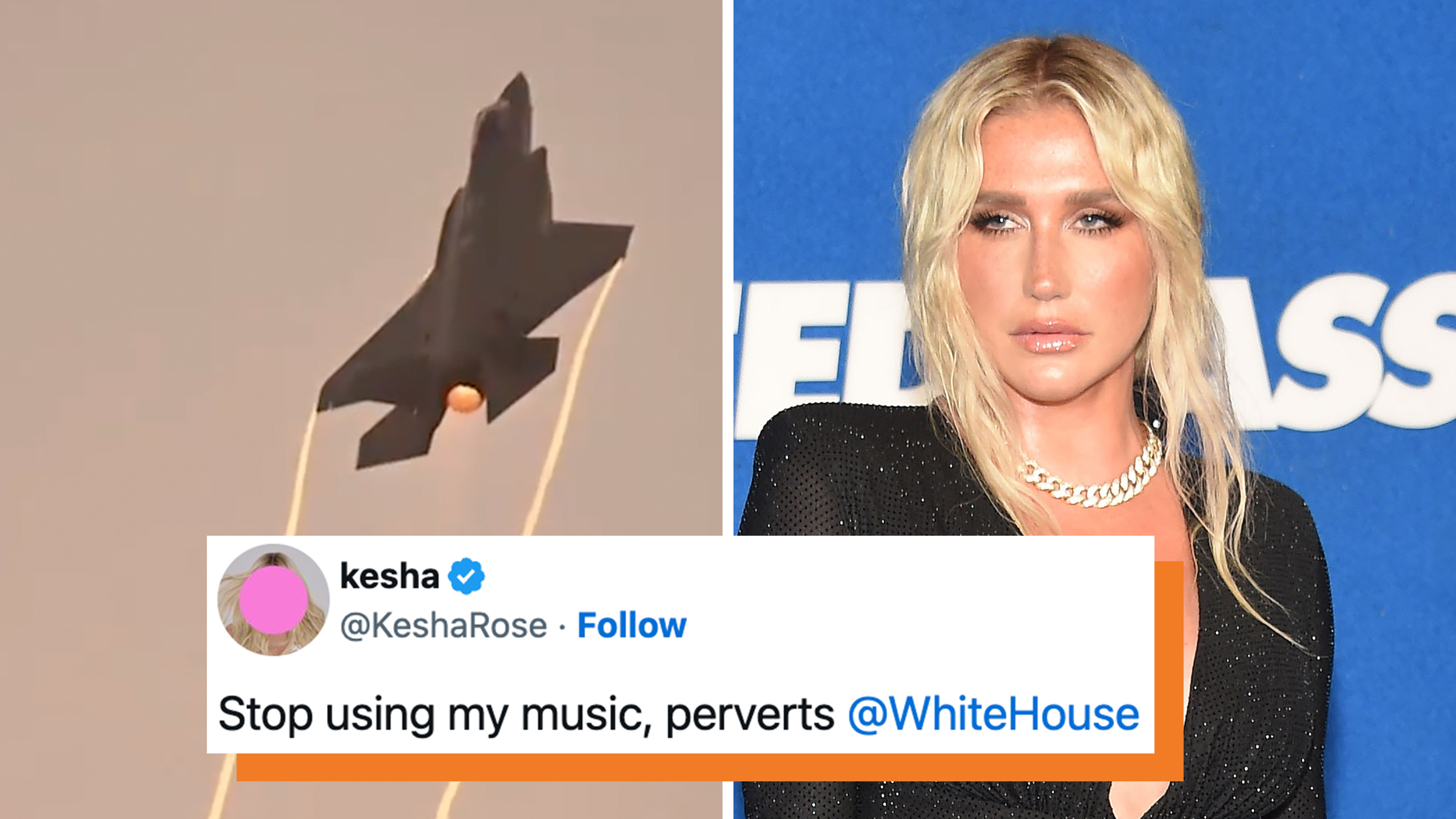Even sitting politely in a recording studio in the basement of a swank West Hollywood hotel, the trio of teens who front Babymetal are a sensory overload, decked in coordinating black-and-red ensembles. Their costumes are a fitting representation of Babymetal’s many contradictions, with spikes and studs alongside poofy skirts and delicate hair bows.
Babymetal is essentially Suzuka Nakamoto (known as Su-metal), Yui Mizuno (known as Yuimetal), and Moa Kikuchi (known as Moametal). And while you might not recognize those names, you’ve almost certainly seen their YouTube video for “Gimme Chocolate,” the band’s head-turning, expectation-shattering breakout hit from 2014, which has been seen over 47 million times.
When the video first broke stateside, people weren’t sure what to make of the band’s shocking combination of metalcore, bubblegum J-pop, and tight choreography. Was it real? Was it some weird Japanese sensation or a viral prank? Two years later, with a new album and upcoming U.S. tour, Babymetal is finally answering those questions. Or at least they’re taking baby steps.
“Through this new album, Metal Resistance, Babymetal has grown so much,” explained Su-metal in Japanese, as translated by their tour manager Nora. “Before we had red skirts, but now the skirts are all black. This is how Babymetal is maturing.”
Costumes aside, Babymetal has actually come a long ways. The band was formed in 2010, as an offshoot of Sakura Gakuin, one of many prepackaged groups of “idols”—young stars presented as role models in Japanese pop music—that featured 10 to 12 teen girls at a time. Somewhere along the way, it’s as if someone accidentally slipped in a CD of Cannibal Corpse and the girls—all between the ages of 16 and 17—just kept on singing. They were backed originally by people mimicking guitar and drums to an audio track, but now there's an actual metal band, known as Kami Band, playing along.
Perhaps it's not surprising, then, that before joining Babymetal, none of the girls were even familiar with metal music.
“Before we had red skirts, but now the skirts are all black. This is how Babymetal is maturing.”
“The main thing was metal was scary,” Yuimetal explained. “But thanks to Babymetal and being exposed to different types of music, we’ve learned to love metal.”
One experience in particular proved pivotal. “We met Metallica [in 2013] for the first time at Summer Sonic”—an annual Japanese music festival—“and that was the first time seeing a metal band in the flesh,” said Moametal. “That’s how we realized how powerful metal is and how it can move people. Metallica is a big, huge influence and inspiration. That’s who Babymetal aspires to become some day.”
At this point, it’s clear that the band isn’t a mere one-hit wonder. 2013’s “Megitsune” reached another 25 million viewers.
“When the first video was uploaded to YouTube, that’s when we realized that people outside of Japan were interested,” said Yuimetal. “That’s where we see Babymetal spreading, with people trying to mimic music or dance moves. YouTube is a place for everybody to get together and interact and share their love for Babymetal.”
Babymetal recently made its first American TV appearance on The Late Show with Stephen Colbert (“nerve wracking,” said Moametal of the experience) and will follow up with their first headlining U.S. tour, starting May 4. While the band has appeared stateside before, most notably as part of Lady Gaga’s ArtRave tour in 2014, this will be their first chance to visit cities outside New York and Los Angeles. That’s important because Babymetal is a spectacle that almost needs to be seen to be believed.
“The main thing was metal was scary.”
If YouTube is anything to go by, a Babymetal show is a riot of lights and sound. In a recent Wembley Arena performance, the trio floated about the crowd and stage in a giant glowing triangle, decked out in glitter robes, and later danced as flames shot to the ceiling. American venues are on a smaller scale than arenas, and the band wouldn’t reveal any specifics of the U.S. jaunt (“Only the fox god knows,” answers Yuimetal, referencing the kitsune fox deity they call to for inspiration).
“There’s so many things about Babymetal you cannot just grasp with the sound,” explained Su-metal. “The visual has to compliment the sound, the costumes have to compliment the sound. The sound is already a mixture of everything, and it could get overwhelming, but if you come to a concert that’s where you get to watch the whole package. The only place to find out what Babymetal is about and what Babymetal aims to do, you have to come out to a show.”
The tour will feature new songs from Metal Resistance, many of which will be played for the first time live. That includes the band’s first English song, “The One.”
“The making of the song was not easy,” Su-metal said of the recording process that pushed her boundaries with an unfamiliar language. “But being able to sing that song and the fans understanding it, it felt like everyone knew the message of it. ‘The One’ is all about getting everyone to become one through the music of Babymetal. It looked like people really got it.”
They’re hopeful that the American fans will embrace the song and the whole Babymetal experience on tour. “Here in America when people love something they really love something, and they show it,” said Su-metal. “The American fans really know how to have fun.”
While “fun” isn’t usually the first word that comes to mind when describing heavy metal, Babymetal clearly isn’t concerned about labels or tradition. In fact, the band is aiming to transcend the genre altogether.
“We’ve always wanted to aim to be the only one,” Moametal said, “and hopefully one day we’ll be able to create this new genre called Babymetal.”
Now that’s metal.
Correction: "Megitsune" was released in 2013.






